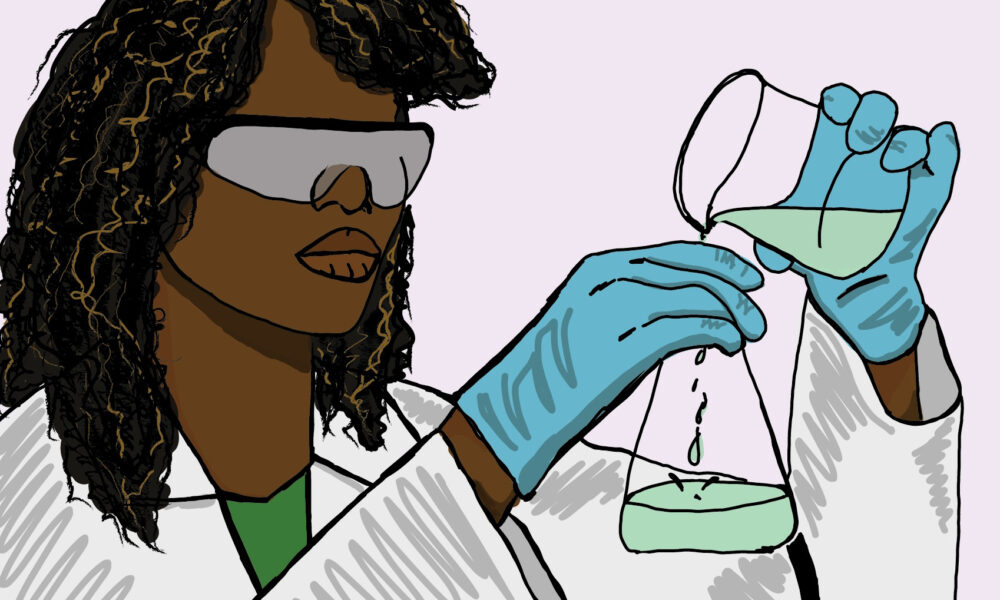The history of science and technology is still reckoning with the contributions of Black researchers. White supremacy has deployed the sciences, and their ideal of objectivity, to dehumanize Black people, experiment on them, and legitimize slavery, colonialism, and dispossession. With the fights for medical and environmental justice still urgent and Black scientists excluded from these critical disciplines, there is no better time to explore the deep history of Black scientists’ struggles and innovations. The Tribune discusses some of the Black scientists whose presence and research have shaped this campus, people who former McGill professor Barbara Althea Jones would have said, “defied time and season.”
William Wright (1827-1908)
William Wright was the first Black doctor (and first person of colour) to receive a medical degree in Canada and become part of British North America. Born in Quebec City while slavery was still legal, Wright taught at McGill for 30 years as Chair of Materia Medica (pharmacology) and served as co-founder and editor for the journal Medical Chronicle. When students eventually voted him out for not keeping up with medical developments, he became ordained as a priest.
Charles Lightfoot Roman (1889-1961)
Roman was the grandson of runaway enslaved people who took flight through the Underground Railroad. Roman’s uncle and namesake, Charles Victor, also worked as a physician and surgeon with specialties in ophthalmology and otolaryngology. The elder Charles dreamed of attending McGill, and Charles Lightfoot ultimately fulfilled this ambition, graduating in 1919 after serving in the First World War. In Quebec, he was also a leading voice in the field of industrial medicine.
Kenneth Melville (1902–1975)
While you might know Kenneth Melville from the eponymous Black Faculty Caucus, Melville was a pharmacologist and civil rights icon in his own right. From his experience as a top student at McGill in 1926 to his research proving that adrenaline is not a sympathetic neurotransmitter, Melville broke barriers in the sciences at McGill as Chair of McGill’s Department of Pharmacology and Therapeutics. He fought discrimination both in Montreal and abroad, once being arrested at a 1960 medical congress in Atlantic City after the cafeteria refused to serve him and fellow scientists because they were Black.
Barbara Althea Jones (1936 – 1969)
Jones was a Trinidadian geneticist who served as an assistant professor at McGill until she died suddenly at the age of only 32. She was the first Caribbean woman to receive a PhD, which she completed in 1965 at Cornell. A “geneticist by vocation, and poet by avocation,” Jones had a vibrant career as a poet, performer, and visual artist. Her collection of poetry, Among the Potatoes, registers the natural world, the Caribbean, the monotony of campus life, and the Black struggle, evincing modernist technique, avant-garde flourish, and radical worldliness. Whether she was writing poetry, teaching lectures, advocating for Black Canadians, or collecting science textbooks, Jones made clear that she was working “Towards a new black man, towards the full realization of man’s consciousness and potential, and towards a new humanism.”
Julius Garvey (1933-)
Son of pan-Africanists Marcus Mosiah Garvey and Amy Jacques Garvey, Julius Garvey received his undergraduate and medical training at McGill. As a cricketer, Garvey represented Canada in a game against England. In 1961, he interned at the Royal Victoria Hospital before moving to the United States for the rest of his surgical career. Garvey was only seven when his father Marcus died, and he would lead the unsuccessful charge to have President Barack Obama posthumously pardon his father, one of the most influential Black nationalists of the 20th century.
Dorothy Thomas Edding (1935-2023)
In the 1950s, the young Thomas Edding travelled from Jamaica to Montreal to start her university studies in physiotherapy. By 2001, after 11 years of spearheading collaborative work with the University of West Indies (UWI) as a McGill professor, Thomas Edding would help build UWI’s School of Physical Therapy with an undergraduate curriculum and, in 2009, a graduate curriculum. A community builder in Montreal as well, Thomas Edding chaired scholarship and educational leadership at the Quebec Black Medical Association and the Women’s Canadian Club of Montreal.








